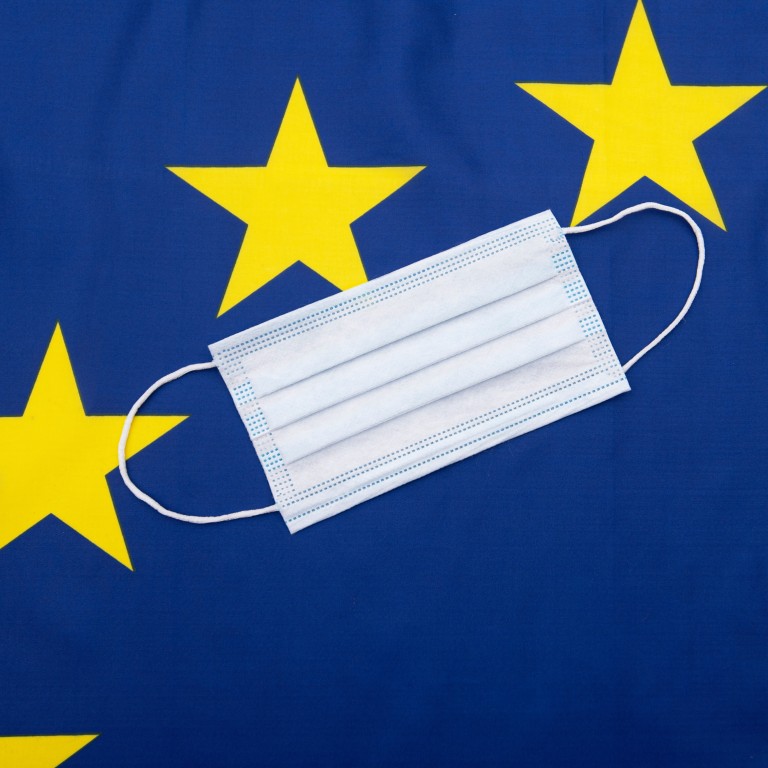
China loses its lustre among Europeans but doors remain open: survey
- Negative views are on the rise because of coronavirus and aggressive diplomacy but cooperation on trade and climate change still desirable
- Nearly 20,000 people in 13 countries questioned on their attitudes towards Beijing
But, as negative views of Beijing have grown across the continent, Europeans continued to regard trade and cooperation with China on climate change in a positive light, according to the report published this week by a group of 20 researchers.
The survey, led by the Sinophone Borderlands project at Palacky University in the Czech Republic, was carried out in September and October and covered Russia, Serbia and Britain as well as EU member states France, Germany, Hungary, Italy, Latvia, Poland, Slovakia, Spain, Sweden and the Czech Republic.

03:39
Coronavirus: Europe’s second wave puts hospitals under pressure again as cases soar
Negative views of China outweighed positive or neutral attitudes in all but three countries – Latvia, Serbia and Russia – and were strongest in Britain, Sweden and France, where more than half of respondents felt relations with China had worsened over the past three years.
Richard Turcsanyi, lead author of the report, said China’s worsening image could be attributed in part to the more aggressive “Wolf Warrior” approach to diplomacy adopted by China’s top envoys in countries like Sweden, France, and the Czech Republic.
“Such highly negative public opinion across Europe creates a pressure on European policymakers to push for more in their relations with China – be it human rights, 5G, or trade and investment negotiations,” Turcsanyi said.
Covid-19 had also contributed to the predominantly negative European perceptions of China, the survey showed. Fewer than 20 per cent of respondents in all but one country believed China’s international reputation had improved as a result of the pandemic. The exception was Serbia, where around a third of respondents felt it had improved.

01:51
Coronavirus hunters find new evidence pointing to the virus originating in Italy
However, in Poland, the Czech Republic, Serbia, Hungary and Spain the leading perceived cause was that the disease had been artificially made in a Chinese laboratory and intentionally spread to the rest of the world. This view was held most strongly in Poland, among nearly half of those surveyed.
The leading response in Sweden and Britain – selected by around 50 per cent of respondents – was that the virus had spread “due to Chinese people eating bats and other wild animals”.
The fourth option – that Covid-19 was brought to China by the US military in 2019 – was held most strongly in Russia, but was not as common there as the belief in the scientific consensus.
In terms of Covid-19 aid, Italians, Serbians and Russians were more likely to feel China had helped their countries the most during the pandemic, while the rest believed the biggest support had come the EU.
Why China’s ‘mask diplomacy’ is raising concern in the West
But the pandemic – along with a perceived need for greater cooperation among nations – was also among the factors which kept Europeans hopeful their governments would continue working with China, Turcsanyi said.
“While the European public are united in terms of their negative perception of China’s impact on the global environment, cooperation on global issues is their preferred policy,” he said.
Respondents overwhelmingly said cooperation on global issues like climate change, epidemics, and counterterrorism should be a priority for their home country’s China policy, favoured by 60 per cent or more in all countries.
And more than half of those surveyed – in all countries but France – said the promotion of trade and investment with China should also be a foreign policy priority.

